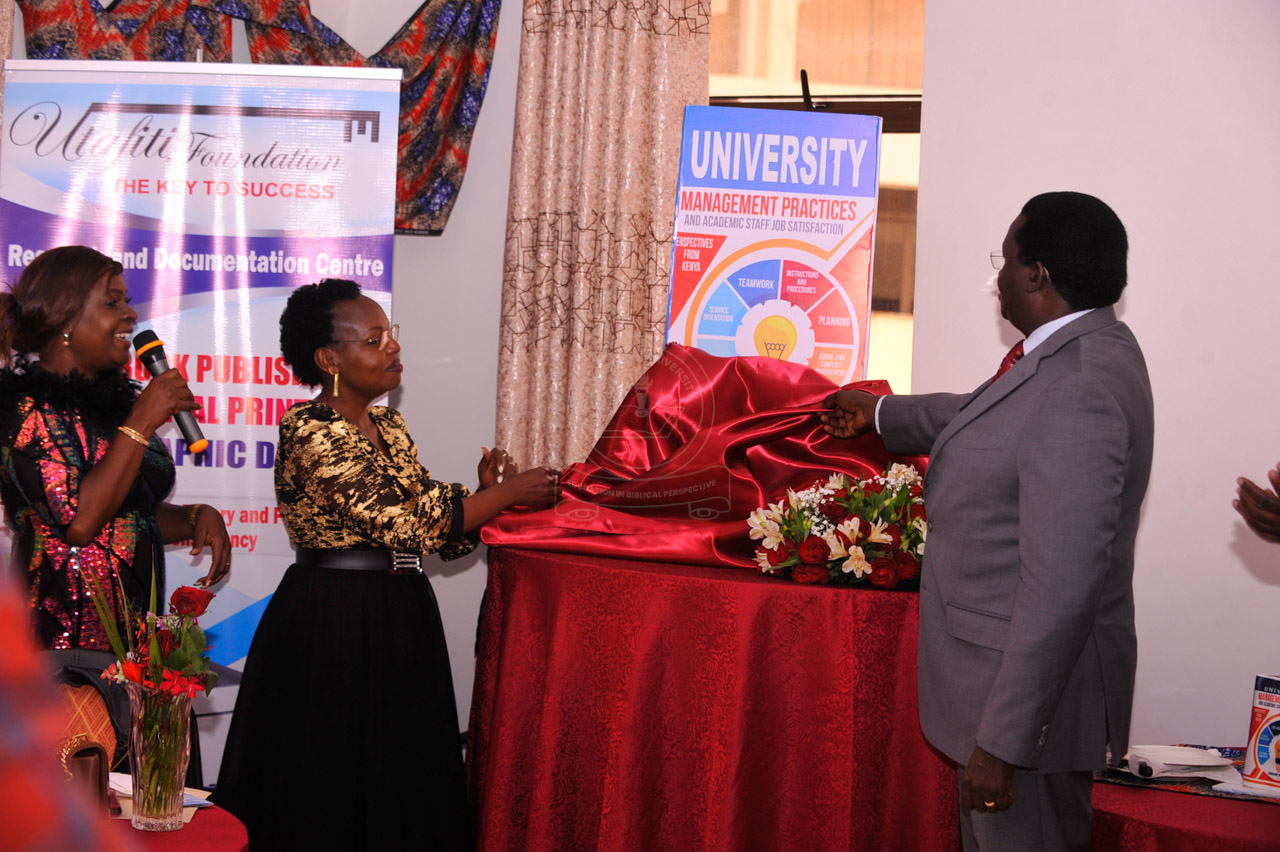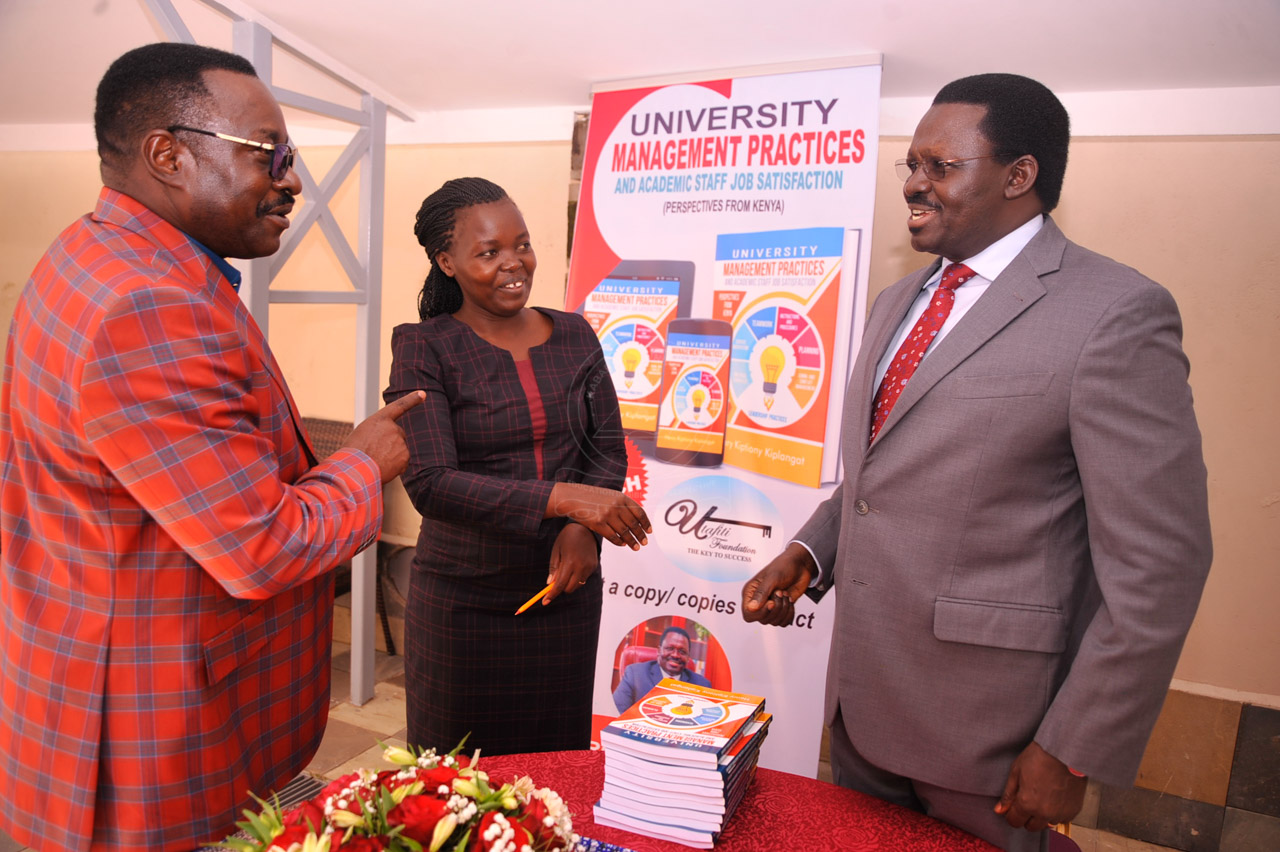On a bright and promising evening at the Grand Winston Hotel - Nakuru, a prestigious gathering of scholars, academicians, and intellectuals from all corners of the nation came together to celebrate a momentous occasion the book launch of Kabarak University's Vice-Chancellor, Professor Henry Kiplangat. The event was a reflection of academic excellence and a testament to the university's commitment to leading a culture of knowledge dissemination. The book, titled "University Management Practices and Academic Staff Job Satisfaction: Perspectives from Kenya," promises to be a valuable addition to the field of higher education.
"University Management Practices and Academic Staff Job Satisfaction: Perspectives from Kenya" is a culmination of years of research and experience in the field of higher education management. It delves into the intricate relationship between management practices within universities and the job satisfaction of academic staff. The book's findings are expected to shed light on how universities can better manage their resources, policies, and practices to create a more satisfying work environment for academic staff, ultimately benefiting students and the institution as a whole.
The launch of Professor Kiplangat's book underscores the importance of research and innovation in shaping the future of higher education in Kenya. As universities face evolving challenges and opportunities, it is crucial to have leaders like Professor Kiplangat who are not only dedicated to their roles but also actively contribute to the knowledge base of the field.
"University Management Practices and Academic Staff Job Satisfaction: Perspectives from Kenya" is expected to serve as a valuable resource for university administrators, policymakers, and researchers striving to enhance the quality of higher education in Kenya. It highlights the significance of job satisfaction among academic staff in ensuring the delivery of quality education and the retention of talented faculty members.
As the book makes its way into the hands of educators, policymakers, and scholars, it is poised to make a significant impact on the future of university management and academic staff job satisfaction in Kenya. Professor Kiplangat's work serves as a shining example of the potential for positive change through dedicated research and leadership in higher education.







